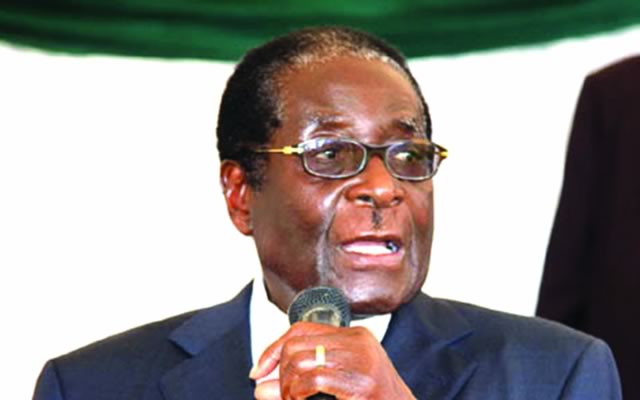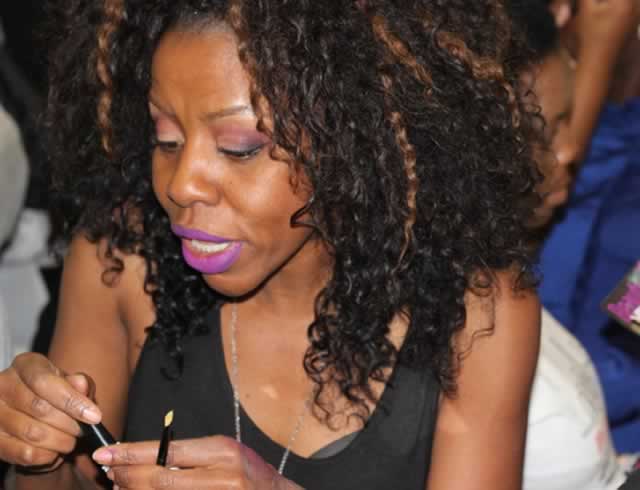When unethical media destroys national image

Panganai Kahuni Correspondent
When one picks up a newspaper, in the majority of cases, one is sickened by negative political headlines, which smell worse than a burst sewage pipe
The media as the fourth pillar of the state should be the beacon of hope as it disseminates information to the general public aimed at first fighting any evil that erodes political, social and economic development. The media is the preacher of both the good and bad with an evangelical objective of making every national an ethical citizen who before his country can be counted on for practising “ubuntu/unhu” for the common good of the nation.
The media must always be honest, ethical and avoid malicious behaviour in the discharge of its work.
Kwame Nkrumah in his book titled, “I Speak of Freedom” posits that: “The imperialists of today endeavour to achieve their ends not merely by military means, but by economic penetration, cultural assimilation, ideological domination, psychological infiltration and subversive media propaganda”.
It is fascinating to note that most of our journalists, particularly those from the private stables, seem to be glorified for writing headlines that sound more of subversive propaganda aimed at destroying the fabric of Zimbabwe.
Our journalists appear not to understand what history has described to us on the tragedies which have beset every other continent on this planet – international wars, the rebellions across North Africa and the Middle East – were all caused by subversive media propaganda as being practised by our own journalists.
When one picks up a newspaper, in the majority of cases, one is sickened by negative political headlines, which smell worse than a burst sewage pipe.
The reporting philosophy seems to be that of promoting foreign interests whilst negating issues to do with national development.
The manner in which our journalists take pride in Western values – principles which they mirror blindly through their non-transparent lenses – boggles the mind.
One wonders whether damaging one’s national image is caused by lack of professionalism/patriotism or by the fact that most of our current journalists did not experience the effect of colonial oppression.
The questions that beg a million answers are: Do most of our young Zimbabwean journalists understand the function of the media?
Do most of our Zimbabwean journalists, particularly those from Daily News and NewsDay, really comprehend the history of slavery and misery caused by colonial oppression?
Do they understand the net effect of their continued negative reporting on the Zimbabwean economic revival?
Negative reporting is not gagged. However, news can never be balanced when the reporting is negatively practiced.
The media as the fourth pillar of state does not seem to give the state the much-needed strength to enable it to stand on its feet.
There has been, in recent days, a concerted effort by our own media to brazenly attack and cause damage to the image of Zimbabwe and its leadership.
One wonders whether by attacking Government and writing falsehoods, the private media, particularly Daily News and NewsDay, view themselves as practising freedom of speech and freedom of expression.
Is publishing of negative headlines and falsehoods the meaning of freedom of the press?
Whilst writing about negative issues happening in the country is not gagged and is healthy it must be practised in good faith. Freedom of expression and freedom of speech must never be manipulated to cause disharmony and disunity amongst people.
Today it can be argued that 80 percent of Zimbabwe’s image is being destroyed by our own media which continue to write negatively and falsely about our motherland. One wonders whether these demonic headlines has become editorial policy of our media houses. It’s sickening to note that the majority of our media houses concentrate on destructive, unethical headlines as if Zimbabwe has no positive issues that are newsworth.
It can be argued that our media has no respect for its readership as they think most news readers do not require to read news on positive and developmental issues.
This, to many patriotic Zimbabweans, vilifies Zimbabwe’s literacy rate that currently stands over 90 percent.
How can a nation with over 90 percent literacy rate be subjected to evil, negative news only?
Zimbabwe is both a political and economic state that is inhabited by ethical people whose cultures and values are constructive and developmental.
To subject the population to continuously read malicious news is causing mental genocide. This is meant to create disharmony in a peace loving nation.
One can now understand why the media was at the forefront of wanting to de-criminalise defamation. The media, particularly the private stables, wanted to go on a rampage defaming the state and its leadership in order to cause mayhem.
The behaviour of some media houses is not different from the behaviour of Stephen Sackur who had no respect for our leaders whom he sought to demonise throughout his interview with Professor Jonathan Moyo.
In analysing such behaviour, the sub-text one gets is that the private media is geared to rubbish Zimbabwe in the interest of foreigners.
One of the tenets of good media practice is to disseminate balanced news to the people.
No nation can develop when its own media is bent on destroying its image.
When foreign media attack our national image one wonders what agenda our own media practitioners will be advancing when they continuously write headlines that seek to denigrate Zimbabwe.
In the same manner the media wants Government to be accountable and transparent, the media should do the same in the process of gathering and dissemination of news.
The media must not only be in the habit of criticising other state entities for lack of corporate governance when they are worse.
It is important for our media to promote developmental projects for these bring food on the table for the whole nation.
Instead of rubbishing the mega deals President Mugabe signed with friendly nations such as China and Russia, the media should highlight how those deals can be made to benefit the economy.
Instead of demonising the ascendancy of President Mugabe to the chair of both SADC and AU, the media should handle this in a manner that enhances the image of Zimbabwe to attract tourists.
Care must be taken against structuring news headlines that seek to sell the newspaper when the net effect is the destruction of national image.
Whilst these media houses might be getting money for themselves, the staffers must understand that economic failures caused by their actions will also bite them.
It is important that the media respects its readership by disseminating balanced news covering both positives and negatives.
It is easy to lock in more readers to a news stable that has a culture of high integrity and is ethical in its reporting processes. The media as the fourth pillar of the state must understand that it also plays a marketing role for the nation on an international platform. Zimbabwe can only develop politically, economically, socially and culturally when the media subscribes to national interest and is fair, ethical and balanced in its information dissemination practices.
Panganai Kahuni is a political and socio-economic commentator.










Comments